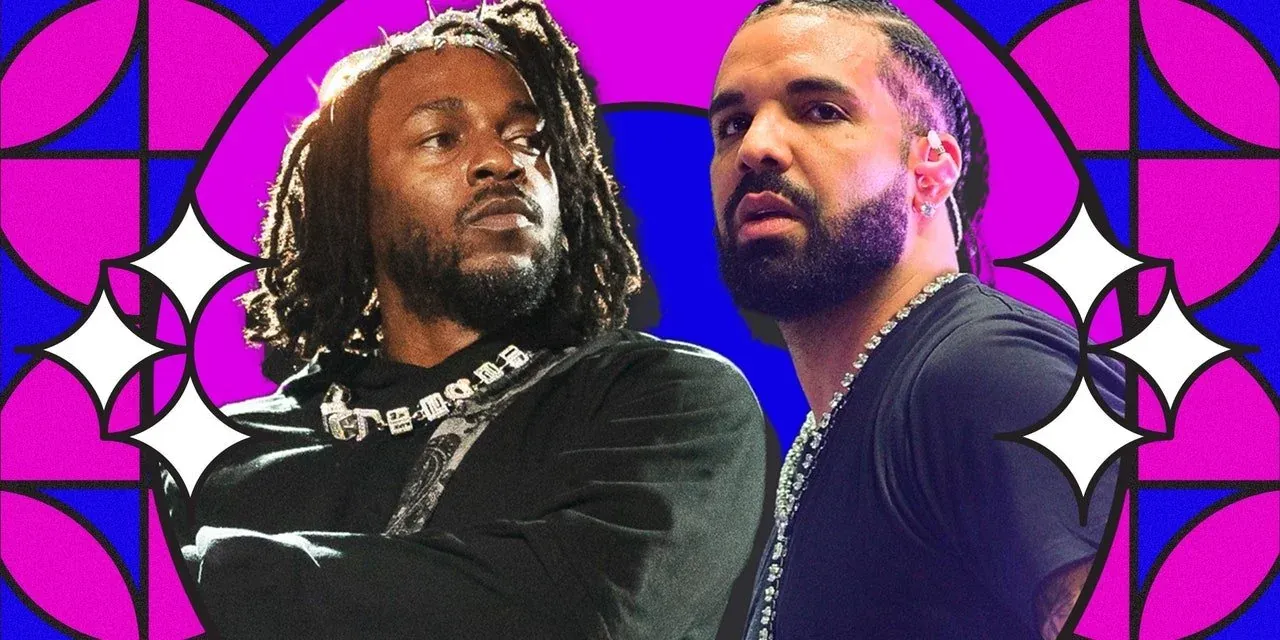The Drake vs. Kendrick Saga: A Lyrical Showdown

In the dynamic arena of hip-hop, the Drake and Kendrick beef has become a saga of lyrical prowess and cultural commentary. As an observer with a penchant for video game soundtracks and an academic background in English literature, I’ve found myself immersed in the unfolding drama, dissecting the verses as one would analyze the classics.
The beef, which seems to have ignited from a single line in a J.Cole track, has evolved into a full-fledged battle of words and wit. Drake’s “First-Person Shooter,” featuring J.Cole, was the spark that set the hip-hop community ablaze. J.Cole’s verse pondered who among the “big three” – Kendrick, Drake, or himself – could claim the title of the hardest MC. This introspective query was a nod to the competitive nature of the genre, likening the trio to the champions of the rap game.
Kendrick’s response, a feature on a Future Metro Boomin track, was a fiery declaration of his solo supremacy, dismissing the notion of the big three. This rebuttal set the stage for J.Cole’s album “Might Delete Later,” which included “Seven Minute Drill,” a track that served as a pointed critique of Kendrick’s discography.
The narrative took an unexpected turn when J.Cole publicly apologized to Kendrick during a concert, a move that was met with ridicule and disbelief. The apology seemed to stem from a place of introspection and a desire to align with his true purpose, rather than engage in diss tracks.
Drake then entered the fray with “Push-Ups,” a track laden with subtext and references to personal relationships and allegations. The song’s most talked-about line involved bodyguards, a layered reference that intertwined personal security, Whitney Houston’s iconic role in “The Bodyguard,” and Kendrick’s fiancée, Whitney Alfred.
The saga continued with Drake’s use of AI voiceovers to mimic Tupac, urging Kendrick to respond. This controversial move was met with legal challenges and widespread criticism for its perceived insensitivity and cringe-worthy execution.
Kendrick’s eventual reply, “Euphoria,” was a scathing critique of Drake’s identity and his relationship with black culture. The song questioned Drake’s authenticity and his use of black features to affirm his place within the community. Kendrick’s follow-up, “616 in LA,” delved into themes of trust and betrayal within Drake’s inner circle.
Drake’s “Family Matters” was a sprawling track that addressed various figures in the industry, including Rick Ross and The Weeknd, further expanding the scope of the beef.
This lyrical showdown between Drake and Kendrick is more than a series of diss tracks; it’s a reflection of the complexities of identity, authenticity, and the relentless pursuit of artistic supremacy in hip-hop. As the saga unfolds, it continues to captivate audiences with its raw emotion and unfiltered expression, proving that the pen can indeed be mightier than the sword.